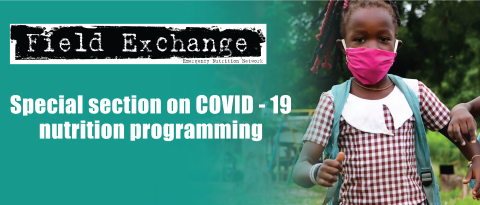Effect of nutrition-sensitive agriculture interventions on maternal and child nutritional outcomes in rural Odisha, India (UPAVAN trial)
Research Snapshot1
Almost a quarter of the world's undernourished people live in India. The investigators tested the effects of three nutrition-sensitive agriculture (NSA) interventions on maternal and child nutrition in the Keonjhar district of Odisha State in India. Clusters of villages were randomised to one of four arms:
- Women's group meetings and household visits occurring each fortnight over 32 months using NSA videos (AGRI group)
- As above but combining NSA and nutrition-specific videos (AGRI-NUT group)
- Fortnightly women's group meetings using NSA videos and nutrition-specific participatory learning and action (PLA) cycle meetings and videos (AGRI-NUT+PLA group)
- Control group (no intervention)
These components have been implemented separately in several low-income settings but this was the first trial to test different combinations of these approaches. Anthropometry and dietary diversity outcomes were assessed in children aged 6-23 months and their mothers through cross-sectional surveys at baseline (November 2016) and at endline (November 2019).
Compared with the control group, there was an increase in the proportion of children consuming at least four of seven food groups in the AGRI-NUT (adjusted relative risk [RR] 1·19, 95% CI 1·03 to 1·37, p=0·02) and AGRI-NUT+PLA (1·27, 1·11 to 1·46, p=0·001) groups but not in the AGRI group. There was an increase in the proportion of mothers consuming at least five of ten food groups in the AGRI (adjusted RR 1·21, 1·01 to 1·45) and AGRI-NUT+PLA (1·30, 1·10 to 1·53) groups compared with the control group but not in AGRI-NUT. There were no effects on child wasting or on mean maternal Body Mass Index (BMI).
The authors conclude that women's groups using combinations of NSA videos, nutrition-specific videos and PLA cycle meetings improved maternal and child diet quality in rural Odisha, India. Future efforts could consider integrating similar interventions within larger scale, multi-sector programme designs to increase impact. However, child wasting continues to be a problem and innovation in the prevention of child wasting is an urgent priority.
1Kadiyala, S, Harris-Fry, H, Pradhan, R, Mohanty, S et al (2021) Effect of nutrition-sensitive agriculture interventions with participatory videos and women's group meetings on maternal and child nutritional outcomes in rural Odisha, India (UPAVAN trial): a four-arm, observer-blind, cluster-randomised controlled trial. Lancet Planetary Health. 2021;in press. Published 2021 Mar 31. doi: 10.1016/S2542-5196(21)00001-2


